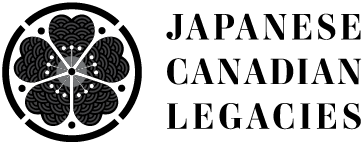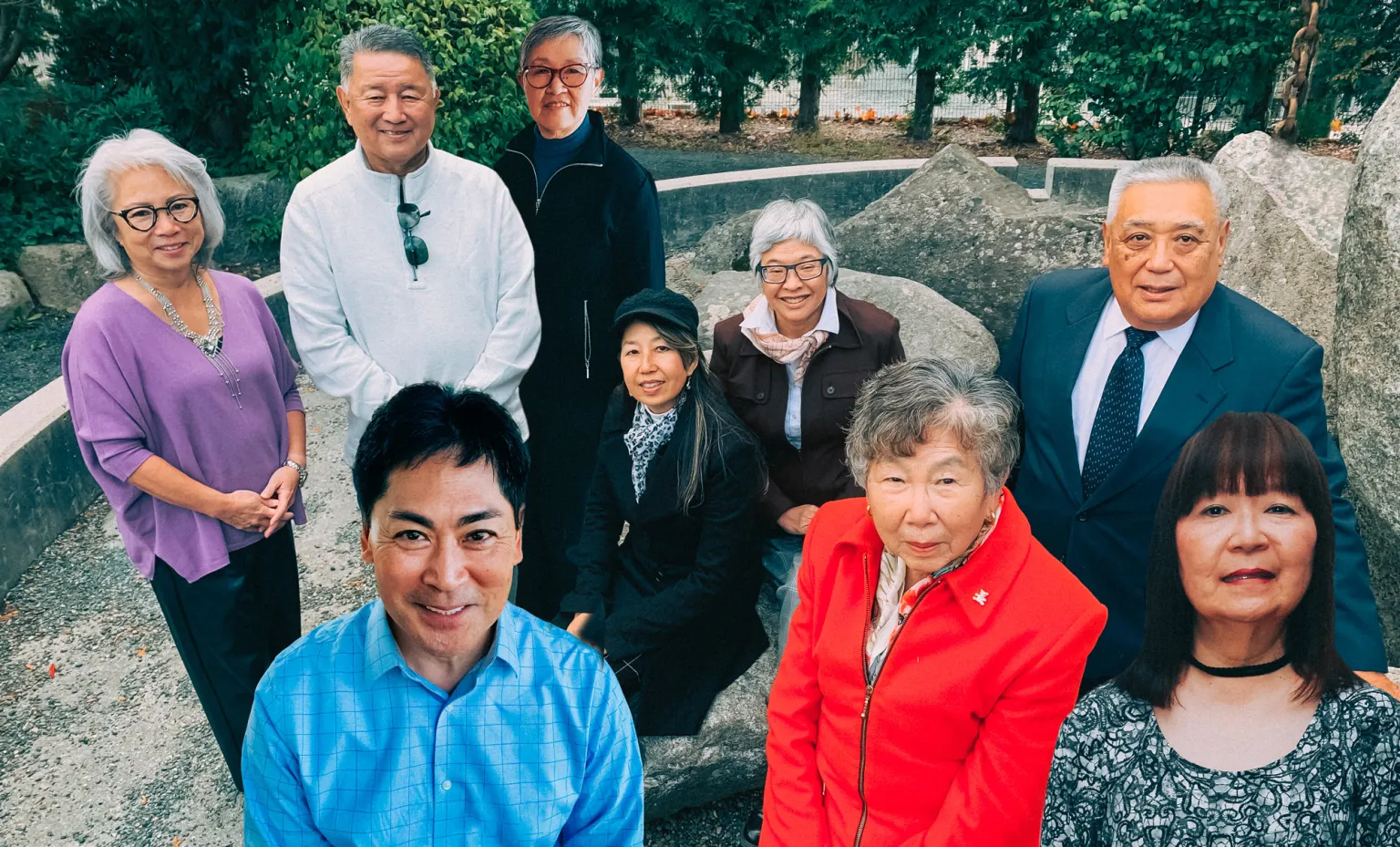Meet the Board & Staff of the Survivors Health & Wellness Fund
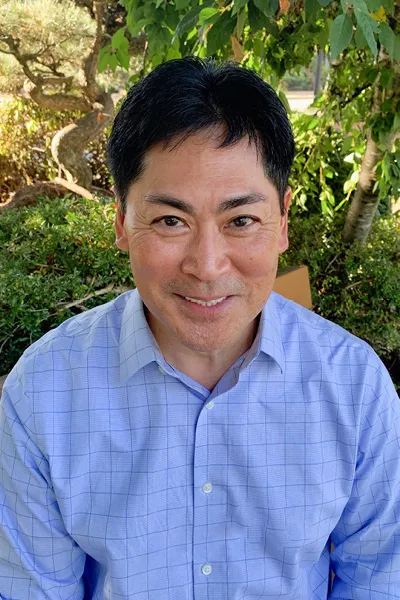
Donald Watanabe – Project Director
Reporting to the Board of Directors of the JCSHWFS, Donald will provide senior leadership for the second phase of the Seniors’ Health & Wellness Fund. He will lead a team responsible for the development of the infrastructure and processes to identify the approximately 6,000 individuals who were dispossessed, forcibly dispersed and/or excluded from the 100-mile restricted zone, and again forced to uproot during the 1940s. Once identified, the Project Director and team will implement an effective and efficient application process as well as timely distribute health support funding to qualified individuals. Donald is a yonsei on his father’s side and sansei on his mother’s side and was an outreach volunteer for the JCSHWF in 2021, assisting Quebec-based survivors with their applications. His grandfathers and maternal uncle were directly affected by the events of the 1940s.
The Japanese Canadian Survivors Health & Wellness Fund is currently being set up for health supports for individual survivors. $28 Million is for individual survivors. A $2 Million fund is set aside for intergenerational wellness and there is more consultation to do within the community to build out the framework for the program. The program will open in early spring 2023. More information will be available in the new year.
Board of the Japanese Canadian Survivors Health & Wellness Fund Society
The Japanese Canadian Survivors Health & Wellness Fund Society Board is regionally representative, and is running the implementation of the Fund. This includes community members who work with seniors: President Cathy Makihara (Nikkei Seniors Health Care & Housing Society – Burnaby, BC), Ruth Coles (President Nikkei Seniors Health Care & Housing Society – Burnaby, BC), Kelvin Higo (Steveston Seniors – Richmond, BC), David Iwaasa (Tonari Gumi, Vancouver, BC), Susan Matsumoto (Calgary Japanese Community Association – Calgary, Alberta), Marlene Mori (Seniors Horizons Club of the Japanese Cultural Association of Manitoba – Winnipeg, Manitoba), Ann Ashley (Co-Chair Momiji Health Care Society – Toronto, Ontario), Shelley-Ann Yamashita (Momiji Health Care Society – Toronto, Ontario). Karen Nishi and Fred Yada serve as members from the JCLS Board. Susanne Tabata is an ex-officio member of the Board and reports to the BC Government quarterly through the JCLS Project Office.
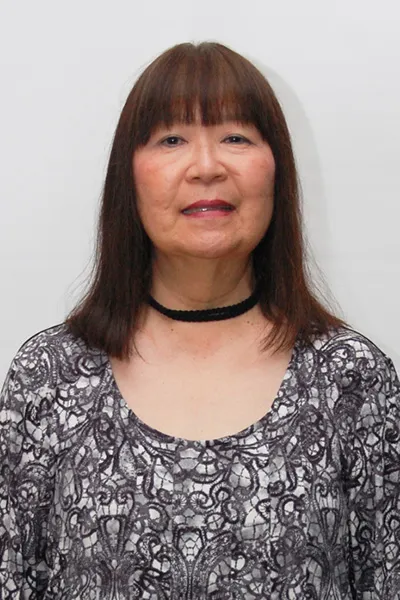
Ann Ashley Momiji Health Care Society | Toronto
What background do you bring to this project?
I have been involved with seniors for the past twenty-one years, since I first joined the Momiji Health Care Society Board of Directors in 2001. My mother was also a resident of Momiji at the time.
I was Vice Chair then Chair of the Board from 2001 to 2007 and am currently Co-chair again. Over the years, I have chaired three fundraising galas for Momiji to raise funds for seniors and have participated in all other events and programs with the seniors. I worked side by side with the seniors and got to know them and their stories. I have such respect for them and how they survived and succeeded after arriving in Ontario from BC after the war.
I am further involved with the seniors in Japanese Canadian Community here in Ontario, specifically, Toronto as I also sit of the Board of Directors of the Japanese Canadian Cultural Centre (JCCC). I have participated in all fundraising galas and other events and festivals that specifically benefit seniors, this includes the latest outreach program for survivors that is a result of the JCCC application for grants from the JCSHWF.
Again I have worked side by side with seniors on various committees at the JCCC, be it in the kitchen or sitting in a meeting, and had the privilege of getting to know them.
I helped broker a partnership with a long term care home when I was Chair, for twenty five beds specifically for Japanese Canadian survivors, in one wing. I am currently working to get another twenty-five beds for Japanese Canadian survivors here in Ontario.
I sit on the Nikkei Voice newspaper board, and we know most of our subscribers are seniors.
Though my involvement with the JC community I have made many connections with other Japanese Canadian organizations. As I have said before, it is always a pleasure and a privilege to serve our seniors.
What brought you to this project?
I came to this project from the recommendation from Shelley-Ann Yamashita, a director on the Momiji Board.
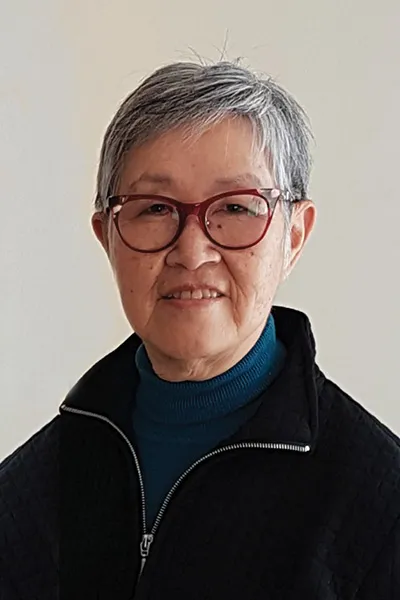
Marlene Mori | JCAM Horizons Club | Winnipeg
What is your background?
I have been the President of the Japanese Cultural Association of Manitoba (JCAM) Horizon Club since November 2015. The Horizon Club is a seniors club that all JCAM members 55 and over are invited to join. Our club meets weekly for eight months of the year for lunch prepared by member cooking teams. From time to time we have other activities including games, bingo and/or speakers. For the past 15 years I have volunteered with the Canada Revenue Agency Community Volunteer Income Tax Program, which prepares income taxes free of charge for people with modest incomes. This includes many seniors. I have held tax clinics at senior’s residences. In addition to completing their taxes, we advise clients on federal and provincial social benefits programs they are entitled to receive.
What brought you to this project?
I became part of this project due to my role as JCAM Horizon Club President. This is the seniors club in Winnipeg that provides services and activities for seniors in Manitoba. I was very active with the Japanese Canadian Survivors Health & Wellness fund and we did a well-received program delivering lunches to homebound seniors.
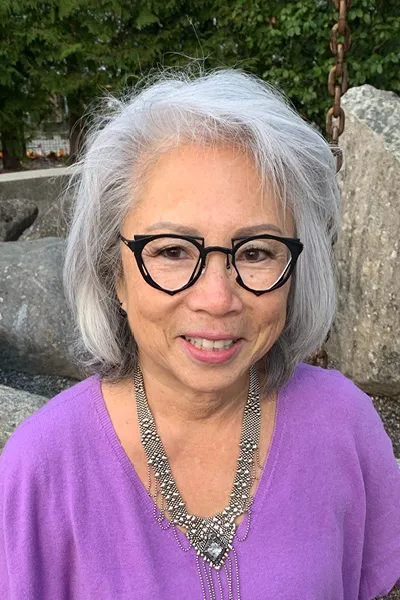
Susan Matsumoto | Calgary Japanese Cultural Association | Calgary
What is your background?
I have been driven to volunteer since my high school years (a long time ago!) and that has not changed in the years that followed. I’ve participated on many Boards, and have also been a founding member of 2 non-profit Societies. I’ve also been very involved in dispersing funds to deserving organizations and individuals, both as an Alberta government employee (providing funding to organizations serving individuals with disabilities) and volunteering with the Japanese Community on a national and local level. My experience includes participation on the NAJC Endowment Fund, NAJC Community Development Fund, and CJCA Calgary Nikkei Cultural Fund. These involvements have deepened my knowledge of the issues of concern to our community and expanded my personal connections with our community across the country.
What brought you to this project?
Growing up, my mother would often share tidbits of her life, growing up in the fishing village of Steveston, and life during the war in the internment camps. It was not all dismal, as mom chose to remember the best of things – a strong sense of community. It wasn’t until I was older, that I was struck by the hardship and injustice of those years. I had the privilege to participate on the Selection Committee for the initial BC government grant of $2 million and saw the myriad programs, events and services that would be provided to our survivors. What a great step in the reconciliation process! With this project comes the opportunity to help even more people and I have the honour of being invited to help in the process. I have long believed that my ikigai – my life’s passion – is to help others and I’m delighted to have this opportunity to do so.
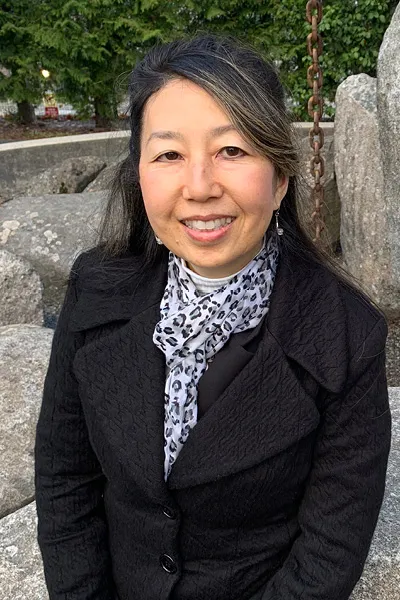
Shelley-Ann Yamashita | Momiji Health Care Society | Toronto
What is your background?
As a health and wellness practitioner, I have worked with the senior population for more than 30 years in a variety of areas of health and wellness, and I have been passionate about challenging the negative stereotypical views of seniors, and emphasizing the value our elders bring to society. My many years of service as a Momiji Health Care Society Board Member and co-chair of it’s Fundraising Committee, as well as my experience in Corporate Communications has given me an avenue to not only honour Japanese seniors, but also to highlight the importance of inter-generational relationships and to bring the community together in celebration of the Japanese culture and its elders.
What brought you to this project?
As a third generation Japanese Canadian – and a younger member of a large extended family – I had the privilege of being around and interacting with many elders. I am grateful for these experiences that encouraged not only my interests in seniors and aging, but also my years living in Japan to explore my Japanese heritage. This led to joining as a board member of Momiji Health Care Society in the late 90s. As a returning and current board member, I had the great opportunity to be a part of the JCSHWF Adhoc Committee, and I am honoured now to serve as a board member for the Japanese Canadian Survivors Health & Wellness Fund Society.
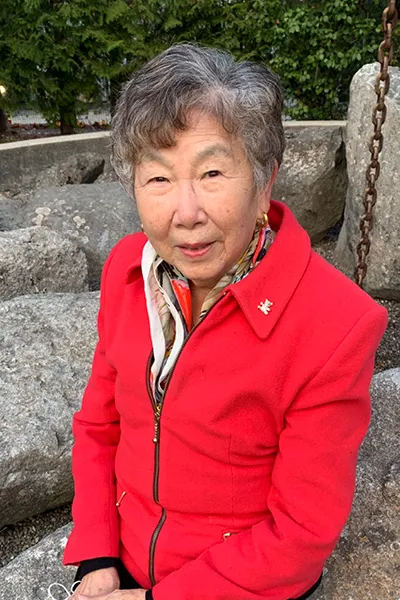
Ruth Coles | President Nikkei Seniors Health Care & Housing Society | Burnaby
What is your background?
Having been brought up with Christian values and parents who dedicated their lives in service to others, especially during the relocation of Japanese Canadians in 1942, serving others has been a large part of my life. My father was instrumental in helping many Japanese families relocate to Grand Forks in response to the many letters and telegrams he received from families pleading for assistance. I believe that my choice of social work as a profession is in response to seeing the community’s needs at large. Forty years ago, a request from some Japanese Canadian women came to a few of us in health care, to respond to the plight of Japanese Canadian seniors’ need for a “culturally sensitive” care facility and programs. Since that time, I have been involved in working on programs and projects to meet this need. Thus, my involvement with Nikkei Seniors Health Care & Housing Society; Robert Nimi Nikkei Home, New Sakura-so and Outreach Programs.
What brought you to this Project?
The continued need of the Japanese Canadian survivors identified in the first $2 million project led me to this second phase of the BC government’s grant for Health and Wellness. Our survivors are aging and in many cases, their need for assistance is increasing. Often these needs are not met through the current health care system. If we can meet these needs promptly, it will ease their life and help them have more fulfilling lives. That is my hope for all our survivors.
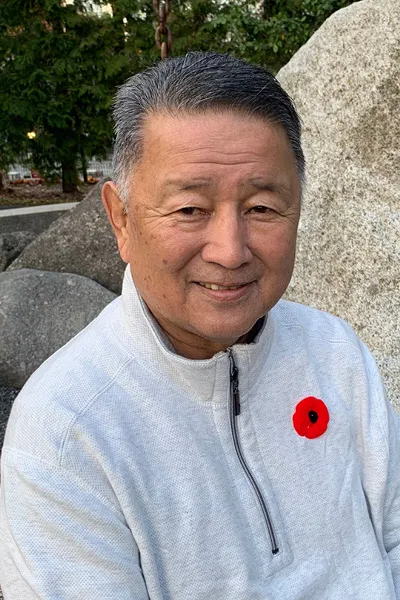
Kelvin Higo | Steveston Japanese Canadian Cultural Centre | Steveston
What is your background?
In my career as Chief Public Health Inspector for the City of Richmond/Vancouver Coast Health, part of my duties related to regulating community care facilities including personal care to extended care facilities. I always tried to protect and promote the health of the underserved and vulnerable persons in our community.
Since retiring in 2016 I have continued my volunteer work focusing on advocacy and support for our senior population. At the Steveston Japanese Canadian Cultural Centre, I have advocated for programming serving our Japanese Canadian seniors including Iki Iki and Genki programs; monthly Nikkei Seniors luncheons, wellness clinics and seminars protecting the health and welfare of these seniors. In 2019, I chaired the committee that promoted the design and construction of the Steveston Nikkei Memorial which honours those pioneers that came before us and laid the foundation for the success of the generations that followed.
What brought you to this project?
Joining the Japanese Canadian Survivors Health & Wellness Fund Society is an extension of my volunteer and advocacy work. In addition to this work, I also promote the preservation of the history, culture and traditions of our Nikkei community. We sponsor the annual Steveston Salmon Festival Japanese Cultural Show and host walking tours and educational activities featuring the history of the contribution of the Nikkei community.
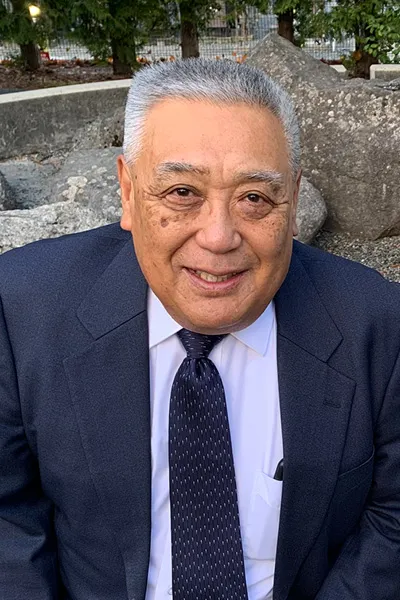
David Iwaasa | Japanese Community Volunteers Association (Tonari Gumi) | Vancouver
What is your background?
I am a third generation (sansei) Japanese Canadian, whose mother was forcibly removed from her home in Langley, B.C. in 1942. My wife’s family was also forcibly removed from Vancouver and Mayne Island. Currently, I am the Chair of the Board of Directors of the Japanese Community Volunteers Association (Tonari Gumi) and have served on the staff and as a volunteer for more than twelve years. Tonari Gumi is one of the largest organizations within the community dedicated to providing programs and services to meet the needs of seniors. While serving as the Chair in 2018, Tonari Gumi was awarded a Canada Volunteer Award for innovative programs to assist seniors. I have also served as a volunteer leader in various other organizations and initiatives within the community and within my church.
Professionally, I was employed as an economist by the Department of Finance from 1975 – 1996, and as the Senior General Manager of the Canadian Wheat Board office in Tokyo, Japan from 1996 – 2006. In 1994, I was awarded 125th Anniversary of Canadian Confederation Medal for service as a member of the NAFTA negotiating team. My professional career has been focused on representing Canadian interests internationally and promoting the economic welfare of Canada. I am proud to have served Canada and feel that Canada should recognize the wrongs that it has committed in the past and compensate those that have suffered from these policies as equitably as possible.
What brought you to this project?
I am keenly interested in doing what I can to improve the lives of seniors within our community. In addition, as a descendant of survivors of the forced removal and internment of Japanese Canadians in 1942, I am committed to ensuring that their sacrifices are recognized and that they can live the last years of their lives in dignity.
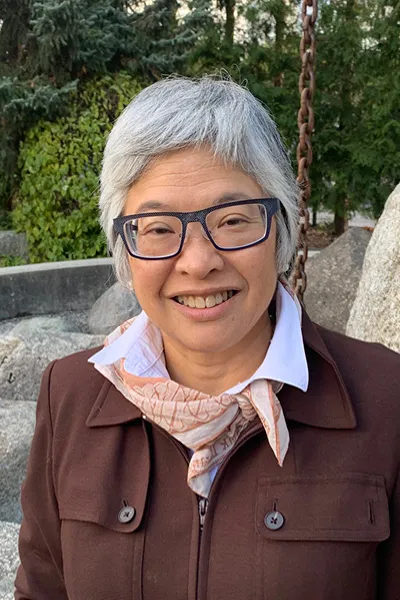
Cathy Makihara | President Japanese Canadian Survivors Health & Wellness Fund Society
What is your background?
I began my work in the Japanese Canadian community as a Field Worker for the Japanese Canadian Redress Settlement office in Vancouver in 1988. From then to 2021, it has been my good fortune to spend my entire work life and volunteer years with the community. I have worked on many initiatives, and working with seniors has had a significant role. The best part of my experience has been working alongside volunteers. Together, all of us were and continue to be drawn to service to the community and its continuity into the future. My skills are broad, as community work requires, boots on the ground – it could be cleaning or leading a strategic plan, it could be training staff or speaking to concerned individuals, and it requires a compassionate side as well as a side which is resilient and persistent. It does seem to me that the work of the Japanese Canadian Survivors Health and Wellness Society is a part of this continuum of my life, and I do this now as a volunteer.
What brought you to the project?
This project is part of the work I have done in the community, specifically as the next phase of the BC Redress initiative to provide health and wellness grants to survivors. I volunteered on the initial $2 million fund in 2021-2022; now this $30 million phase is the continuation of the work we started. This is part of the public service aspect of my life, I enjoy it very much and feel fortunate that I can be part of another important, transformative initiative in the Japanese Canadian community.
